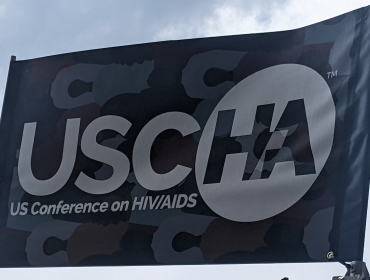Genital Herpes Rates Soar Around Time of Super Bowl
A new study shows that genital herpes rates soar around the time of Super Bowl.
A new study shows that genital herpes rates soar around the time of Super Bowl, but it’s not just a football thing.
A study conducted by STDcheck.com shows that genital herpes cases spiked 56% in Super Bowl host cities for the last three years. Host cities have been Miami, Florida (2020), Tampa, Florida (2021), and Los Angeles, California (2022). Here’s the breakdown of the data for the past three years:
- Miami, 2020: herpes rates surged 101.54% year-over-year
- Tampa, 2021: rates got up to 50.39% year-over-year
- Los Angeles, 2022: genital herpes grew 16.82% year-over-year
The Centers for Disease Control and Prevention (CDC) and the National Library of Medicine conducted a study that showed genital herpes rates spike during other sporting events, music festivals and other major events as well. In fact, they found that the number of people with genital herpes is higher than previously realized. The CDC estimates that 20 percent of adults under 50 years old have genital herpes and another 1 out of 5 people aged 14 to 49 have oral herpes, which can be spread through kissing or touching someone who has sores in their mouth.
The yearly spike in STD cases around events.
If you’re wondering why STD rates spike during the Super Bowl, it’s because of how many people are in town for this particular sporting event. This increase can also be seen around other sporting events such as World Cup Soccer Finals, NBA Finals, MLB World Series and even Major League Soccer Cup Final matches.
STD rates also tend to increase around music festivals like Coachella. This could be due to lack of sleep combined with alcohol consumption increasing risky behavior like having unprotected sex.
Other sporting events like the World Cup, NBA Finals and MLB World Series have also been known to create a spike in STDs.
In the United States, the Super Bowl is an unofficial national holiday, according to the NFL. And it’s not just a huge event for Americans; it’s also become one of the biggest sporting events in the world. It seems that whenever this massive event occurs, STDs also spike—and there are a few reasons why.
First of all, there is a lot of travel associated with the Super Bowl festivities and even more so during its duration (dozens of players plus a lot of the event goers must travel thousands of miles to reach their destination city). The music and soccer festivities take place in cities across North America and Europe, which means there are hundreds if not thousands of people flying into different destinations every day during this time period. This makes it easy for STDs to spread across borders or even continents as fans fly out from their home base to attend parties at Super Bowl host cities.
Additionally, these large gatherings create specific environments where STD transmission can occur more easily: bars and clubs will have more patrons than usual on hand; hotels will be packed full of tourists looking for accommodations; streets will be lined with people waiting for transportation; etc.. All these factors play into creating a perfect storm where STD transmission can happen easily because there are simply more opportunities available when large populations converge upon one place at once!
Sex Workers & Super Bowl
In host cities for the Super Bowl, there is always an increase in crime because of the influx of people, whether it be carjackings, breaking into cars, muggings, or sex work, which is illegal in every state except Nevada. Many sex worker advocacy groups are not happy about the crackdown on sex workers, stating that most of the arrests are to just put people in jail instead of helping them receive services.
The stadium event also draws in human traffickers as well. While the arrests do recover trafficking victims, most of the sex workers are out there on their own free will. However, some prostitutes (adults doing sex work willingly) will claim to be sex trafficked (forcing to have sex as a minor or adult). This will keep them from being arrested. So, there may actually be more prostitutes than sex trafficking victims, which would throw most numbers way off.
Many news outlets have dispelled the myth that there is a drive in sex work during the Super Bowl. There may be an increase in arrests, because law enforcement is “cleaning up” the area around the stadium, but the arrests don’t equate to a new demand in sex. Requests for sex workers remain relatively the same during Super Bowl week, shockingly.
So, there may be an influx of sex workers (prostitutes and trafficked) to Super Bowl host cities, expectant of an increase in clientelle, but there is no rise in sex trafficking. You would think that with a large group of men attending the event, with pockets full of cash and testosterone at an all time high, that there would be a demand for sex. When in reality, only 2 – 5 percent of men actually buy sex.
HSV-2 is commonly known as genital herpes.
It is important to know that not all cases of genital herpes are caused by HSV-2. Both HSV-1 and HSV-2 can cause genital herpes, but most individuals who have been infected with one type of the virus never experience symptoms or suffer from any complications. The Centers for Disease Control estimates that more than 25 million people in the United States have genital herpes caused by either strain.
In 2016, around 5 percent of people aged 14-49 had HSV-2 infection that causes genital herpes — an increase from 4 percent in 2010 and 3 percent in 2000, according to an annual analysis conducted by the CDC’s National Center for Health Statistics (NCHS).
While 80 percent of these cases involve men (meaning they were infected with HSV-2 through vaginal intercourse), women can also contract the virus during vaginal sex if they’re not taking precautions against it — hence why some consider it “the gift that keeps giving.”
Both of these sexually transmitted diseases can be spread through direct skin-to-skin contact, even without penetration or fluid exchange — as with a high five, a shared straw or utensil, or a handshake.
In terms of the Super Bowl, this is a particularly good time to remind everyone that genital herpes can be spread even if you don’t have symptoms. Both of these sexually transmitted diseases can be spread through direct skin-to-skin contact, even without penetration or fluid exchange — as with a high five, a shared straw or utensil, or a handshake. However, this is only if the genital herpes sore is present (open and wet). Otherwise, if there is no outbreak on the skin, it’s not a threat. This is especially true for cold sores. Wash your hands after shaking hands with someone with a cold sore. They may have touched their cold sore without thinking, then shook your hand. The germs don’t live for very long outside of the infected area, but it is better to be on the safe side.
Additionally, people who are infected with HSV-2 can pass the virus to their infants during childbirth. If you have genital herpes and are pregnant or trying to become pregnant and have not been tested for this virus, talk to your doctor about getting tested early in your pregnancy and being treated for genital herpes before passing it on to your baby.
Symptoms of herpes are not always present, so you can have it without knowing.
- Symptoms of herpes are not always present, so you can have it without knowing.
- Genital Herpes symptoms are more likely to be confused with a cold sore than anything else.
- Herpes and cold sores are a lot alike, but they’re not the same thing.
- There’s no cure for herpes yet—but there are some treatments that can help manage symptoms and reduce the risk of spreading the virus.
It’s important to know your status and get tested regularly if you are having sex with multiple partners or having sex with someone who does.
The first and most important thing you can do to protect yourself from getting genital herpes is to know your status. If you have been diagnosed with genital herpes, it’s important to get tested regularly and talk about testing with your partner(s). You should also discuss testing for other STDs including HIV, gonorrhea, chlamydia, syphilis and hepatitis B.
If you are having sex with multiple partners or having sex with someone who does:
- Get tested regularly (every 3-6 months)
- Get tested for other STDs (HIV, gonorrhea, chlamydia)
Talk about getting std tested together with your partners. The best prevention is open communication before any sexual act is performed. This way you can all be honest with no pressure or guilt. It is also a good idea to get tested with your new partner. It forms trust, keeps communication strong, and you’ll both have no lurking feelings wondering if you brought STDs into the new relationship.
Medically Reviewed by J. Frank Martin JR., MD on May 24, 2022
Secure and Confidential
STD testing services
The fastest results possbile - available in 1 to 2 days

Tagged
Categorized As
Author: STD Check Editorial Team
At STDCheck.com, we go to great lengths to ensure quality content. We’re using our own collection of data. It is not bought or made up for “click-bait” purposes. We don’t entice traffic with cheesy graphics or raunchy headlines. Our information is to promote STD testing, educate people, let go of social stigmas, and bring awareness. We also provide a completely confidential atmosphere through private testing. When we produce an article, it is fact-based. We check it with medical advisors that approve it. Our staff consists of doctors and other medical professionals who peer review the content we make available on STDCheck.com. From all over the world, we have sourced the best and the brightest content developers, including medical professionals, marketing engineers, data scientists, content specialists, and media relations.




